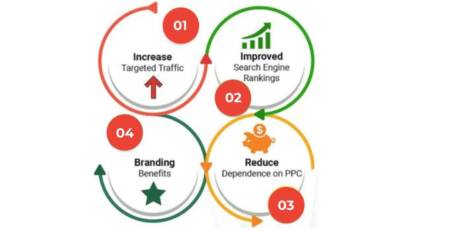How to Outrank Your Competitors with SEO Tools (Hint: You Only Need One)
There is no definitive answer to which tool is better for SEO as it depends on your needs, preferences and budget. However, based on some of the web search results, here are some of the pros and cons of each tool for SEO:
- SEMrush has more accurate keyword difficulty data compared to Ahrefs. This can help you find low-competition keywords that are easier to rank for.
- SEMrush has a full Traffic Analysis competitor module that shows estimated traffic metrics for any website or app. This can help you analyze your competitors’ traffic sources, audience overlap and performance gaps.
- SEMrush is more affordable at higher pricing tiers (Agency and Enterprise) compared to Ahrefs. This can help you save money if you need more features and users for your SEO projects.
- Ahrefs has a larger keyword database than SEMrush. This can help you discover more keyword opportunities and expand your content strategy.
- Ahrefs provides more in-depth backlink data for any website compared to SEMrush. This can help you audit your backlink profile, find link-building prospects and monitor your competitors’ link strategies.
- Ahrefs has a faster crawler than SEMrush. This can help you get fresher data on your website’s health, performance and issues.
Ultimately, both tools are excellent for SEO and have their own strengths and weaknesses. You may want to try them out yourself with their free trials or plans before deciding which one suits you better.
Here is a comparison table on the benefits of using SEMrush and aHREF tools based on some of the web search results:
| Feature | SEMrush | aHREF |
|---|---|---|
| Backlink analysis | Shows only the number of backlinks a website has. Does not show an in-depth analysis of backlinks. | Provides more in-depth backlink data for any website, such as referring domains, anchor texts, link types, etc. |
| Keyword research | Has more accurate keyword difficulty data compared to aHREF. Shows keyword variations, questions, related keywords, and phrase matches. | Has a larger keyword database than SEMrush. Shows keyword ideas, parent topics, SERP features and also-clicked keywords. |
| Rank tracking | Offers a daily rank tracker included in each plan. Allows tracking up to 5000 keywords per project depending on the plan. Provides position changes and visibility trends reports. | Keyword update frequency varies depending on the plan (daily/weekly/monthly). Allows tracking up to 10000 keywords per project depending on the plan. Provides ranking distribution and competitors comparison reports. |
| Traffic analysis | Has a full Traffic Analysis competitor module that shows estimated traffic metrics such as visits, unique visitors, pages per visit, bounce rate etc for any website or app. Also shows traffic sources breakdown and audience overlap reports. | Does not have a dedicated traffic analysis module but shows organic traffic estimates for any website based on its ranking keywords and monthly search volumes. |
How about manual search results? Pros and Cons
Manual search and SEO tools have their own advantages and disadvantages. According to some of the web search results, here are some of the pros and cons of each method:
- Manual search gives you more control over your SEO strategies and allows you to handpick backlinks, keywords and content that are relevant to your website2. You can also verify that each SEO task has been done according to plan2.
- Manual search is very time-consuming and requires a lot of dedication and effort from your SEO team2. You may need to hire more people or outsource some tasks to handle all the aspects of SEO manually. It can also be prone to human errors and inconsistencies.
- SEO tools can help you automate some of the tedious and repetitive tasks of SEO such as submitting websites to search engines, generating reports, analyzing data etc2. This can save you time, money and resources that can be used for other areas that cannot be automated.
- SEO tools can also provide you with more data and insights on your website’s performance, competitors’ strategies, keyword opportunities etc. This can help you make better decisions and optimize your website for higher rankings and traffic.
- SEO tools may not be as accurate or reliable as manual search in some cases1. They may miss some important factors or nuances that affect your website’s SEO such as user intent, context, quality etc. They may also have limitations or drawbacks depending on their features, pricing and updates.
Comparison table for you based on some of the web search results
| Criteria | SEMrush | Ahrefs | Manual Search |
|---|---|---|---|
| Keyword Database Size | Largest (20.4 billion) | Large (10.3 billion) | Depends on manual research |
| Keyword Difficulty Data | Most accurate | Less accurate | Depends on manual analysis |
| Backlink Data Quality | Good (43 trillion) | Best (62 trillion) | Depends on manual research |
| Traffic Analysis Module | Yes (full) | No (limited) | No |
| Crawler Speed and Frequency | Slow and infrequent | Fast and frequent | Depends on manual updates |
| Pricing Plans | More affordable at higher tiers ($199-$399/month) | More expensive at higher tiers ($179-$999/month) | Depends on manual resources |
In conclusion, both manual search and SEO tools have their own benefits and drawbacks for SEO. You may want to use a combination of both methods depending on your goals, budget and preferences. As you can see, each option has its own benefits and drawbacks for SEO. You may want to consider your goals, budget and preferences before choosing one.











